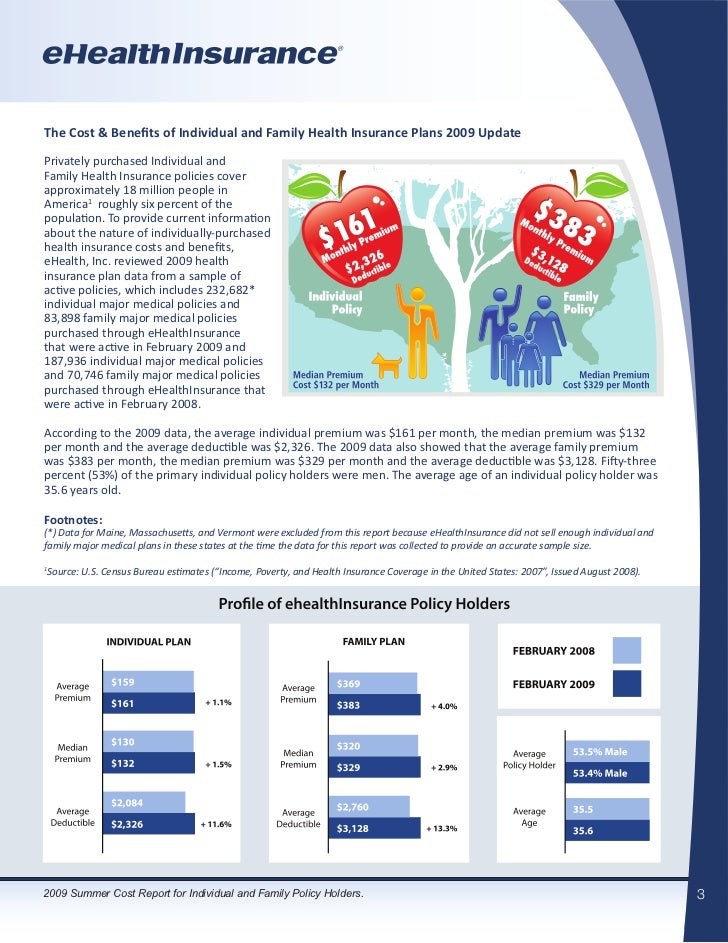- Get link
- X
- Other Apps
- Get link
- X
- Other Apps

Individual or family Health Insurance is also commonly known as personal health or private health insurance. Insurance companies offering this product will refer to it as individual health insurance.
There are different types of insurance policies and plans of every state and every insurance company. In all states, the basic difference between group and family health insurance is that the plans available to individuals and families are not guaranteed issue. This means that the private health insurance company may turn you down for coverage based on pre-existing medical conditions or they may approve you for medical insurance coverage but exclude benefits offered under the health plan that you have selected. Some states do not permit insurance companies to place exclusion riders on individual health insurance policies.�
The premiums that are charged for individual health insurance plan are based on different factors. These include your age, your lifestyle habits, your zip code and your health status. For example; smokers will pay more for personal health insurance than non smokers, as will people that are overweight. Persons that are charged a higher premium are subject to this rate adjustment because the insurance company views them as a higher risk. Once you are covered under a family insurance policy, you may not be signed out for a rate increase based on claims history. If the private health insurance company increases your rate, it must increase the rates of all existing plan members covered under the same family health insurance plan. In addition, the insurance company may not cancel your coverage for excessive claims. If your claims exceed the maximum lifetime benefit as denied in your health policy
 , the insurance company may legally cease paying benefits toward any further medical treatments.
, the insurance company may legally cease paying benefits toward any further medical treatments.



Comments